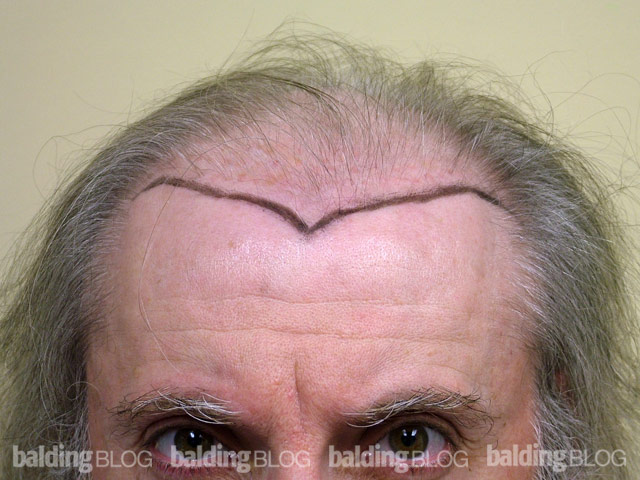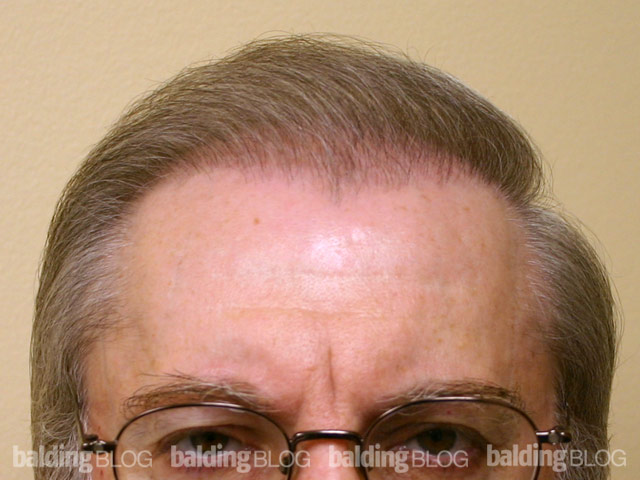I just had my consultation at your office last week. I want to congratulate you with a professional way of managing your practice.
This blog entry is a little lengthy, but it is important to retell this man’s tale as he told it to me. For the purposes of privacy, I’ll refer to him as Joe.
Joe had received three opinions from different doctors over the past few months. The one with me was the last of the consultations. After receiving the nice note from him, I asked him for a competitive analysis. Joe had planned to get multiple opinions over a three month period and he had already attended one of our open house events prior to seeing me privately.
He had some comments about our practice, some of which were not flattering. He criticized the quality of our video as tired and out of date (it is 14 years old) and our brochure was not nearly as fancy as the ones that he had seen elsewhere. He might not have been aggressive at pursuing us if it were not for the generally less than professional presentation of the other two practices. With the two previous groups he had met, both were front-ended with a professional salesman who went through well-scripted processes, each recommending what the salesmen thought Joe might need to address his balding problem. Both of these groups applied considerable pressure to get him to schedule a hair transplant. At one of the two clinics, the doctor came into the office, but spent very little time with him, only confirming what the salesman told Joe about his needs. When he left each of the two previous groups, he was somewhat impressed, but skeptical of their sales process. Later, he did some internet research and found considerable legal problems with one of the groups and many generally negative comments on internet chats. Both groups were eventually crossed off his list.
Our office was his third stop. He came by an open house event and met with many patients that had been through the same thing he was now facing. Three patients came in without notice and they showed results that he felt were normal looking. He was impressed with the openness of the patients attending the open house. He met two patients with the exact balding pattern that he had, both in their 40s and they had Joe’s hair and skin color as well.
Joe went into the operating room and talked to the outgoing fellow who was having the hair transplant that day. When we eventually met, he was impressed that I had committed a full hour to the interview. The night of the consultation he went to the internet and found that every claim that NHI had made on its website (reflecting their authority as a pioneer in the field) was easily validated. This was quite different than the claims made by the other groups which he felt were over-hyped in their representations. The very next day, he got an email from me with what he said “was an amazing and thorough summary” of the conversation we had on his visit the day before. I had included a full fee schedule for the quoted estimate of work. None of the other transplant office took the time to produce such a document, not even the doctor who performed surgery on his broken nose a few years ago.
I developed my hair restoration practice as I did when I practiced a more traditional ‘general surgery’. I’ve always believed that a medical practice should be classy and that means to me that the doctor should take every effort to provide what he would want to see if he or a member of his family were a patient — and that would include an honest, open communication. Unfortunately, too many medical groups who are now dominating the field of hair transplantation, have applied heavy sales tactics (which I believe is either immoral or unethical). The patient can easily become a victim if critical information is held back. As a case in point, throughout this blog, I discuss the need for assessments with mapping of the scalp hair for loss looking for miniaturization, and even with multiple articles written by me on this subject, the metrics in this field have not been incorporated into the standard of care. I would never transfuse a unit of blood without knowing the hemoglobin of a patient who was bleeding, nor would I use potentially toxic medications without understanding the working efficiency of the liver or kidneys, yet many hair transplant doctors seem to constantly offer extensive hair restoration surgery without measurements of the patients existing hair status or in giving the patient some help in predicting his future hair loss.
We need a standard of diagnosis for the consultation process and we need to exclude the salesmen who dominate the process and make recommendations that should be in the exclusive domain of the doctor. We need to incorporate such processes as mapping of the scalp for miniaturization, in order to give the patient a fighting chance in understanding what he is agreeing to when he undergoes a hair transplant. We need to provide educational material about what the patient may experience, including all of the risks (not sugar coated) associated with a transplant process. If we don’t do these things, then I will continue to speak out about our standard, hoping that the consumer will press those in this industry to discard shoddy sales tactics.
Tags: hair transplant, hairloss, hair loss




